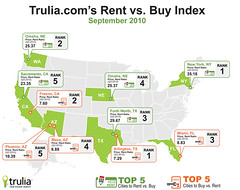Purchasing property can be nerve-wracking, but life-changing. If you know what you are doing, it can be less stressful. In the paragraphs to come, you’ll learn how to take charge of your situation and making shopping for real estate a pleasant experience.
If you are planning on starting a family, your home should have plenty of space for everyone. There are safety issues, too, that can affect your choice of home if you have children. For example, the type of staircases in the home and protective fences around pools must be considered. By purchasing a home whose previous owners had children, it should be guaranteed to be safe.
If you are purchasing a home that has been foreclosed, keep in mind that it may call for some renovations. A lot of foreclosed homes have not had anyone living there for a long time, there will be maintenance to do. Quite often a foreclosed house will require a new HVAC system, and it may also have pests.
Rental Property
Research a rental property thoroughly before buying it. If you are considering purchasing a rental property, you should not consider buying the property until you have completely reviewed the records for at least the past two years. You need to verify that the information given to you by the seller regarding the income generated is accurate. Additionally, the lender will probably also want this crucial cash flow information before they sign off on the loan.
Even if the bank does not require a home inspection for a loan to go through, you will still want to have any property inspected. When you use a professional inspector before buying a house, you will find out if there are any problems. A trained professional will be able to detect issues with the property that might have otherwise been overlooked.
It is critical to thoroughly understand the terms of a mortgage loan when you purchase a home. Knowing how your monthly mortgage payment is impacted by the length of your mortgage, and the effect on total cost over the entire loan period, will help clear up any confusion later on.
Just like any other product, your home should have a warranty. When purchasing a new home, either from the builder, or an older home from the previous owner, ask for a warranty. The builder should be prepared to guarantee his or her workmanship for a set period of time. The last owner should be prepared to obtain a home warranty that is valid for a minimum period of 12 months in case of any necessary repairs.
Credit Report
Make sure you are aware of what your credit report states prior to starting house hunting. When you get the credit, examine it and repair any errors you find. Good credit will help you easily get a mortgage, so give your credit report a going-over before you start looking for homes.
Before you put the furniture in your home, and all your belongings as well, get some insurance. If a tornado or earthquake strikes before you’re even moved in, you’ll be glad your homeowners insurance covers the damage. If you procrastinate about getting insurance, however, you might find yourself in a financial bind because you can’t afford to pay for the damages to your new home or to your furniture.
Measure any home that you are think of buying before making an offer. Be certain that the square footage noted on public records and that listed by the owner are the same. Both numbers should be close to each other, if not, you should reconsider buying this property or determine why the discrepancy exists.
If you are buying a home and you also own a car, make certain there is plenty of parking nearby or a dedicated parking space. This is especially vital for homes that do not have a driveway. This could quickly become frustrating, or expensive if you have to purchase a parking permit.
Using the previous tips, your buying process can be simpler and smoother. Be prepared for a variety of situations that may arise during the process of purchasing your home.

